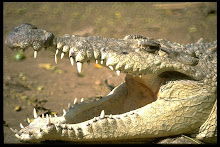You know, up until we did James and the Giant Peach at our children's theater four full years ago, I still thought Roald Dahl's first name was actually "Ronald."
Dahl's autobiographical look at the first twenty years of his life is--whoops, almost forgot!
# of pages: 160
Pages read so far: 2040
Average number of pages/book: 340
Sorry about that.
All right, Dahl's autobiographical look at the first twenty years of his life is a quick and interesting read. I've really never read biographies or autobiographies frequently, but they are a fantastic reminder that the world is a huge place with tons of diversity, especially when you start reaching across historical eras. The headmasters of English boys' schools in the 1920s would likely be fired, fined, and/or arrested in 2009 American school systems. Also, kids dying young has been a fairly regular occurrence throughout history and still is in many parts of the world, especially death by diseases easily treated here. Dahl's life story was a reminder to how incredibly blessed I am to live when and where I currently live.
Dahl's Boy is an especially interesting read if you are familiar with his works; otherwise, it might be relatively dull. With some authors, there are veiled clues toward their stories and characters found in people, places, and events in their histories. Dahl's are all incredibly clear. A child's distrust of grown-ups; evil and abusive schoolteachers; fascination with chocolates, especially experimental new types; loving, trustworthy grandparents; the delightful, naughty fun that comes from farting socially; these are all ideas taken quite obviously from his childhood, and it's kind of fun to see where these stories came from.
It's also sad (from my perspective, anyway) to see when and how Dahl lost his faith in faith. The headmasters who would unjustly cane Dahl and his schoolmates happened to be the same men who led prayer and worship on Sunday, one even eventually becoming the Archbishop of England. He had trouble reconciling the unfair treatment he received on Friday with the message of love and mercy he heard on Sunday, and so he decided that something in the Christian message was not quite right. A sobering reminder of the power of a Christian witness, both positively and negatively.
Also (and, in my book, probably related) found this tidbit interesting: late in the book, Dahl is describing his first job as a businessman, and how much better of a life that is compared to that of a writer:
"I enjoyed it, I really did. I began to realise how simple life could be if one had a regular routine to follow with fixed hours and a fixed salary and very little original thinking to do. The life of a writer is absolute hell compared with the life of a businessman. The writer has to force himself to work. He has to make his own hours and if he doesn't go to his desk at all there is nobody to scold him. If he is a writer of fiction he lives in a world of fear. Each new day demands new ideas and he can never be sure whether he is going to come up with them or not. Two hours of writing fiction leaves this particular writer absolutely drained. For those two hours he has been miles away, he has been somewhere else, in a different place with totally different people, and the effort of swimming back into normal surroundings is very great. It is almost a shock. The writer walks out of his workroom in a daze. He wants a drink. He needs it. It happens to be a fact that nearly ever writer of fiction in the world drinks more whisky than is good for him. He does it to give himself faith, hope and courage. A person is a fool to become a writer. His only compensation is absolute freedom. He has no master except his own soul, and that, I am sure, is why he does it." (emphasis mine)
I feel like I have a lot to say about this passage, but it needs more thought before I can say it clearly or correctly. Something about this paragraph doesn't sit quite right, and while I know there's some tongue-in-cheek going on there, I also know that there's usually a shred of truth in sarcasm.
Maybe after I've reasoned it out I'll post more thoughts on this one. (WHAT? Books make you THINK???) For now, however, think on these things, and think very hard on what it is you do to give yourself faith, hope, and courage, either in art or in life. Because chances are, the two are very closely linked.
Subscribe to:
Post Comments (Atom)

No comments:
Post a Comment